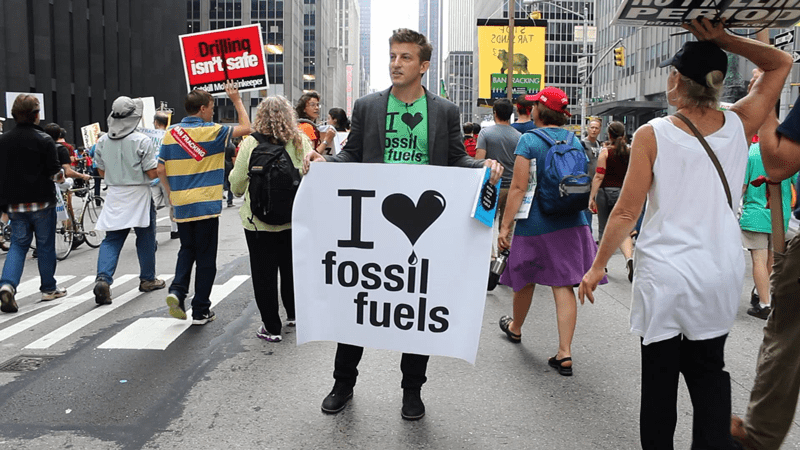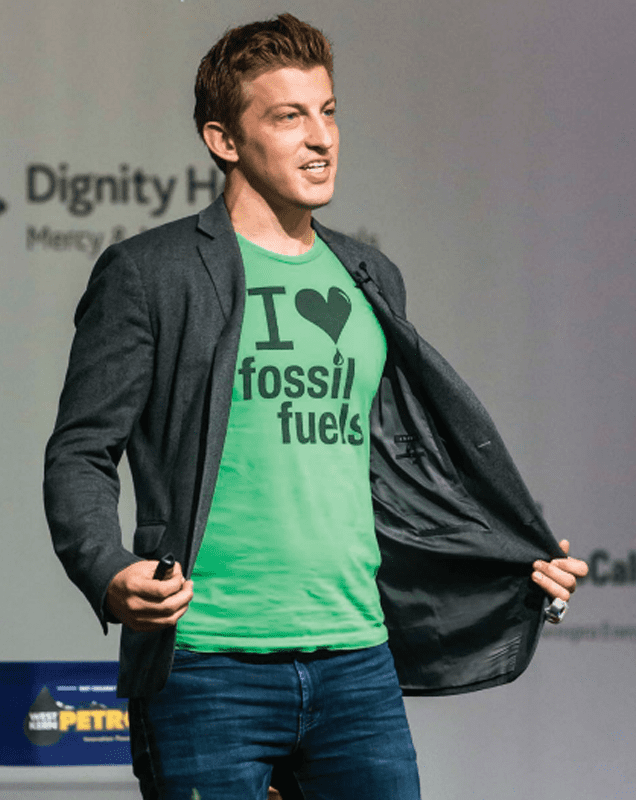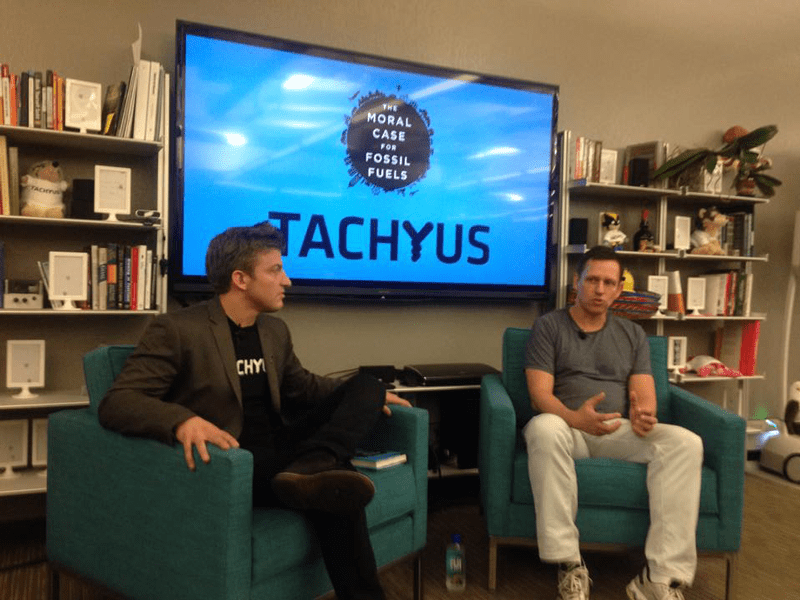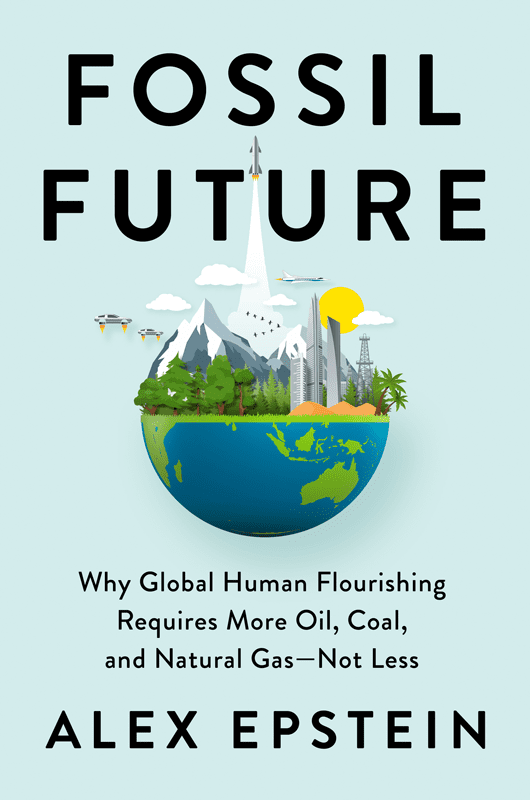The fossil fuel guilt trip laid upon the public leaves many feeling insecure and questioning their dependency on oil and gas. There seems to be no end to the continuous debate. It looms in the news and the fabric of all sources of communication. One individual has countered the attack with his message of support and justification. Instead of citing statistics and fiscal analysis, Alex Epstein, philosopher and author, presents a moral approach supporting fossil fuel use.
Utilizing a robust arsenal of communication methods, Epstein counters those who sell the world on climate change, and claim fossil fuels will lead to planetary annihilation. His goal includes educating those interested in listening to his philosophical approach to the use and development of petroleum products. He administers his message through speaking engagements, books and a website of refreshing insights.
The Awakening
To stand at a rally where the masses repeat, “drilling isn’t safe,” takes a person with great passion to chant the opposing message – “I love fossil fuels” – while donning a t-shirt decorated with the exact phrasing. Epstein’s beliefs gave him the courage to walk into this fire but, after discovering when and how his fossil fuel beliefs originated, his courage and commitment came as no surprise.
“The passion came with my discovery of how good fossil fuels are and how others thought they were bad,” says Epstein. “I think people tend to get passionate when they see something important.”
Financial influence and political viewpoints did not impact Epstein’s decision to become a philosophical proponent of fossil fuels. His family had no connection to the oil and gas industry, and he grew up in the liberal community of Chevy Chase, Maryland. At 19, Epstein studied computer science at Duke University, but then took a turn and embraced the idea of becoming a practical philosopher.
Epstein saw the match by using his knowledge of how people think, make assumptions and embrace values to assist people in processing critical issues. As he spread his message, helping others became more important than what was available in the classroom. His passion would quickly manifest and lead him in another direction with academia and a PhD in the rear-view mirror.
His career would follow a writing path before becoming intertwined with the energy industry. At 27, Epstein realized that the energy industry was necessary for human life to continue, and it needed to be understood due to incorrect thinking surrounding it. If Epstein had an “ah ha” moment, this was it.
“I realized that energy policy is incredibly consequential because the more cost-effective energy is, the more human beings can use machines to be productive and prosperous,” notes Epstein on his website. “The less cost-effective energy is, the more human beings just use manual labor, which dooms them to poverty.”

Evaluating the Energy Policy
Epstein argues the energy industry is thought of and evaluated incorrectly because the discourse is one-sided. While it considers only the negative impacts of the world’s primary energy source – fossil fuels – it fails to give consideration to the multiple benefits, like being the most economical energy source. While people weigh the pros and cons in many areas, such as taking prescription medications, the general public does not apply the same thought process to oil and gas use.
“Looking only at the side effects is a recipe for disaster,” says Epstein. “Whenever someone knowingly ignores the benefits, it typically means they have a bias.”

Although fossil fuels meet an undeniable need, Epstein realizes specific areas where their importance is overlooked or ignored. While they reign as the most cost-effective energy source, that need directly influences the advancement of the human race, yet that fact is widely ignored. Further complicating the situation, a staggering number of human beings suffer, with some eventually perishing when reliable and affordable energy is unavailable. With such a valid point made, world leaders still condemn the use of fossil fuels.
“One level as to why leaders ignore the benefits of fossil fuel use is that people have come to develop a false view,” says Epstein. “They think the earth is delicate and then impacted by people.”
Epstein feels he has identified why world leaders ignore the benefits of hydrocarbons while simultaneously exaggerating their potentially detrimental effects. Whether on purpose or not, leaders accept anti-human perceptions and values. Human activity is vilified instead of celebrated in the sense that the planet is this being that must be coddled and protected like a newborn. Human activity only drives a negative impact that ultimately institutes irreversible damage.

“Earth being delicate is simply a false model,” says Epstein. “It can accept human flourishing.”
Epstein reasons that the earth is not fragile but dynamic, with endless possibilities for the human race to capitalize upon. Instead of destroying the planet, its inhabitants possess the ability to improve it. The focus should be directed at making those improvements intellectually.
“The major philosophical reason leading thinkers to ignore fossil fuels’ benefits is that their primary moral goal is not advancing human flourishing on Earth but eliminating human impact on the earth,” says Epstein on his website. “To them, fossil fuels’ benefits are unimportant or even bad.”
Instituting Change
After finding his calling as a philosophical thinker and identifying what subject he should impact, Epstein had to devise a strategy to communicate his message and change the error in thinking that drives stifling energy industry policies. He responded with the creation of his nonprofit, The Center for Industrial Progress. His primary focus would revolve around a pro-human energy thought process.
As he gained ground, his initial plan was to go straight to the forefront and confront those with opposing viewpoints. He demanded opportunities and challenged his opponents to debate issues. His passion even transported him to his opponents’ rallies.
Epstein battled wits with anti-fossil fuel activist Bill McKibben in 2012 and even went head-to-head with Greenpeace and Sierra Club representatives. He fought the minds of over 310,000 protesters at the People’s Climate March in 2014. One might rationalize this confrontational approach to be dangerous, but Epstein believes he is right and, if so, his message must reach others to correct where they have steered off course.
“I am an advocate for pro-human thinking,” says Epstein. “The best-case scenario is that my work leads to better energy policies.”

Creating a Digital Platform
While the pandemic may have impeded thought and progress, Epstein created Energy Talking Points as a platform for pro-energy stewards to promote their message and policies. He later crafted a program designed for elected officials to serve as a resource on energy viewpoints.
“I take a lot of my points and boil them down into my concise talking points that are very easy to share,” says Epstein. “I originally developed many for elected officials, but they are usable by anyone.”
The website has served others who support Epstein’s philosophical standing on fossil fuel use. It also has built and cultivated his reputation as a fossil fuel supporter, making him well-known among mainstream energy activists. His digital presence continues to grow and serve his crusade through social media platforms like Twitter.
“Social media provides a huge possibility,” says Epstein. “I make sure to continually post on Twitter to get the message out.”
Epstein adds that his work is nonpartisan as he refrains from endorsing candidates or political parties. Still, with the political split that divides the country, he recognizes his message is more likely to be discussed by one political organization. He places importance upon influencing critical thinking to understand the significance of fossil fuels and embrace their use in bettering civilization.
“Unfortunately, right now, rational thinking about energy is reflected mostly by Republicans, but I am available to any political party interested,” says Epstein.
Propelling the Message to Print
Like in a major war, Epstein takes the proverbial battles to multiple fronts by sharing his message and changing how people perceive and recognize hydrocarbon use. This includes publishing his work in three books, with his first, Fossil Fuels Improve the Planet, in 2013. His second book, The Moral Case for Fossil Fuels, was published the following year and became a best seller.
Epstein’s latest book, Fossil Future: Why Global Human Flourishing Requires More Oil, Coal, and Natural Gas—Not Less, was released in 2022 and instantly crowned a best seller, indicating his message was not only being heard but appreciated. Each copy continues to command the ability to create a positive impression of the fossil fuel industry and the impact it has on the environment. Minds are being enlightened, and people’s viewpoints are changing.

His latest book’s message could not be more precise or concise. Opposing the viewpoints of a looming climate disaster and energy revolution through renewables, Epstein argues that fossil fuels still reign as the proven top source of energy on a global level. In contrast, renewables continue to demonstrate that they are undependable and further increase energy costs. When listing benefits in Fossil Future, he quickly reminds the audience of a rise from poverty made possible through fossil fuels. He additionally depicts the balancing act between progress and regression. Epstein argues that while fossil fuel use can claim one degree of warming in the last 170 years, deaths associated with climate change have decreased to an all-time low.
To communicate the message of his latest book, Epstein guides the reader through self-discovery, impacting critical thinking for the better. After understanding and accepting his notion that a flourishing human framework is critical, readers can experience an epiphany of the beneficial aspects of fossil fuel use. Using more hydrocarbons enables the ability to safely impact the environment for better service and protection in the future, and increases the potential to identify viable alternatives going forward.
Epstein continues to paint a more descriptive picture of fossil fuel use in Fossil Future. He references an “anti-impact framework” as the platform for accepting the popular notions of climate disaster and an impending boom in dependency on renewables. Framework components include failed thinking methods, misperceptions and anti-human values. Fossil Future identifies these pillars of irresponsible thought that guide the mainstream media and leaders in making ludicrous predictions about oil and gas and climate change over a half-century.
“I hope this book counteracts incorrect thinking and teaches people how to think critically and discover the benefits of fossil fuels and how they far outweigh any side effects,” Epstein says.

The Road Ahead
Epstein’s passionate awakening continues to thrive and inspires him to further his reach. He sees a viable and dynamic future in fossil fuels that he truly considers natural and moral. Attention should be directed at embracing this mantra and not wasting time on statistics and messages that can be manipulated to promote anti-human behavior.
Debates, public speaking and interaction with the government serve as potential opportunities to promote a message that supports human growth. To persuade change in public thinking, Epstein will continue to promote his message to anyone who will listen. He will keep using Energy Talking Points as a platform to share crucial information that only validates his cause and counters the nonproductive human behavior of fossil fuel opponents.
Epstein will also rely on his published work to help inform and change the way people think. He feels it is critical to get Fossil Future into the hands of those who can influence the way society perceives the issues. Students and educators can obtain a free copy at fossilfuture.com, where discounts and additional resources are available.
“I hope my work leads to new and positive energy policies,” says Epstein. “To do that, we must change behavior and how we look at fossil fuels. If we can see the good, humanity will flourish.”
Book Excerpt: Save the World with… Fossil Fuels?
By Alex Epstein
In this book I’m going to try to persuade you of something that may seem crazy to you – something that definitely used to seem crazy to me.
I’m going to try to persuade you that, if you want to make the world a better place, one of the best things you can do is fight for more fossil fuel use – more burning of oil, coal and natural gas.
While we are almost universally told that more fossil fuel use will destroy the world, I am going to make the case that more fossil fuel use will actually make the world a far better place, a place where billions more people will have the opportunity to flourish, including: To pull themselves out of poverty, to have a chance to pursue their dreams and – this will likely seem craziest of all – to experience higher environmental quality and less danger from climate.
I am not going to make the case for more fossil fuel use by making some “climate change denier” argument that fossil fuels’ CO2 emissions aren’t impacting climate; I totally acknowledge that they have contributed to the 1°C warming we’ve experienced over the last 100-plus years, and they will contribute to further warming going forward. But I will argue that the negative climate impacts of fossil fuels will be far, far outweighed by the unique benefits of fossil fuels.
Fossil fuels, which provide 80 percent of the world’s energy, have and will continue to have the unique benefit of providing low-cost, reliable energy to billions of people in thousands of places – a benefit that is desperately needed in a world where some three billion people still use less electricity than a typical American refrigerator. Contrary to claims that solar and wind are rapidly replacing fossil fuels, fossil fuel use is still growing, while intermittent solar and wind energy, after generations on the market, provide just three percent of the world’s energy – and that three percent is totally dependent on fossil fuels, especially natural gas, for 24/7 backup. Solar and wind are nowhere near being able to replace the energy that fossil fuels provide today, let alone the far greater amounts of energy humanity needs going forward.
One of the key benefits of more fossil fuel use, I will argue, will be powering our enormous and growing ability to master climate danger, whether natural or man-made – an ability that has made the average person on Earth 50 times less likely to die from a climate-related disaster than they were in the 1°C colder world of one hundred years ago.
Because fossil fuel use is so vital to the world’s future, I will argue, today’s proposed policies to rapidly eliminate fossil fuel use would, if fully implemented, have truly apocalyptic consequences – making the world an impoverished, dangerous and miserable place for most people. And, even if fossil fuel elimination policies aren’t fully implemented – which they won’t be, given the expressed intent of China, Russia and India to increase their fossil fuel use – even widespread restrictions on fossil fuel use that fall far short of elimination will shorten and inflict misery on billions of lives, especially in the poorest parts of the world.
Excerpted with permission from Fossil Future: Why Global Human Flourishing Requires More Oil, Coal, and Natural Gas – Not Less by Alex Epstein (Portfolio; May 2022).
Nick Vaccaro is a freelance writer and photographer. In addition to providing technical writing services, he is an HSE consultant in the oil and gas industry with twelve years of experience. Vaccaro also contributes to SHALE Oil and Gas Business Magazine, American Oil and Gas Investor, Oil and Gas Investor, Energies Magazine and Louisiana Sportsman Magazine. He has a BA in photojournalism from Loyola University and resides in the New Orleans area. Vaccaro can be reached at 985-966-0957 or nav@vaccarogroupllc.com.
Oil and gas operations are commonly found in remote locations far from company headquarters. Now, it's possible to monitor pump operations, collate and analyze seismic data, and track employees around the world from almost anywhere. Whether employees are in the office or in the field, the internet and related applications enable a greater multidirectional flow of information – and control – than ever before.













